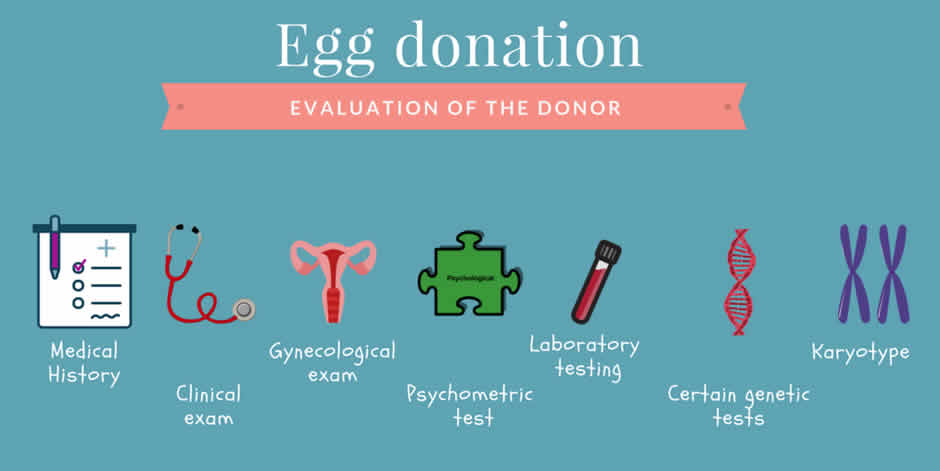Egg donation is a service «Parens Fertility» offers to women who have faced some issues that make it impossible for them to get a healthy embryo through the IVF process or natural conception.
Our egg donation programs help women with genetic or other health conditions impacting their eggs to mother a healthy child and those who can carry the baby on their own without resorting to surrogacy. Both women considering using an egg donor and becoming a donor should understand all this process's peculiarities.
Who can become an egg donor?
Since donor eggs are necessary for women who can't produce oocytes of good quality for IVF or have some disorders that may be genetically transferred to their future child, only women with an excellent health condition and egg quality may become egg donors. The motivation of women who decided to donate their oocytes may differ – some are guided with good intentions to help other people become parents. Others may do it for the sake of monetary benefits. No matter what leads her to a fertility agency, she has to meet a number of preconditions for donation.
In Ukraine, there are two options for egg donation. The first one is a direct donation when a woman donates her eggs to a specific person. The second one is anonymous through fertility agencies and egg banks. Ukrainian legislation stipulates the requirements to the egg donors, which include the following:
- Age range from 18 to 36 y.o.;
- She should be healthy and have at least one healthy child of her own;
- Egg donors should have no hereditary diseases or negative phenotype signs;
- The woman should follow a healthy lifestyle and have no bad habits that may impede her eggs' quality, such as smoking, alcohol, or substance misuse.
Fertility clinics strive to ensure that their donors meet all these requirements and set their own standards to guarantee an even better selection of women who can donate the biological material of the highest quality. To make sure that a woman is a perfect candidate for taking part in an egg donation program, fertility doctors refer the one to specialized medical examinations (e.g. gynecologist, endocrinologist, etc.), assign some lab tests and assays (blood tests, hormone tests, genetic tests, TORCH-tests, etc.). They also collect her medical history and data on other aspects of her health (lifestyle, bad habits).

How to choose a perfect donor?
Finding a perfect egg donor is nothing of an easy task for a family! It's no surprise because the partners have to choose the future of their child – what traits their child will likely inherit. Agencies usually provide a portfolio with the specifications about the donor's appearance, profession, hobbies, personal traits, etc., so couples can choose, for example, the hair and eyes color of the donor or make their decision based on her personal traits and life achievements.
The experts in the fertility clinic guide the process of looking for a perfect match for you, so you will get the support and assistance you may need.
Everything you need to know about the egg donation process
After finding a perfect egg donor and obtaining the results of all the necessary examinations and tests, the donation process starts. First of all, the doctors will synchronize the menstrual cycles of the donor and intended mother. The woman donating her eggs will have to administer herself special hormone injections to facilitate this coordination procedure. At this stage, she will be closely monitored by her doctors, and when her eggs mature, they will be collected in the clinic under general anesthesia.
The next stage after menstrual cycles synchronization is the retrieval of the oocytes and their fertilization with the injection of men's semen to create an embryo. This procedure is called in vitro fertilization (IVF). Usually, multiple oocytes are retrieved from the donor, and doctors create multiple embryos and cultivate them in special laboratory conditions for a few days. When they reach the blastocyte stage, doctors evaluate them to detect any genetic abnormalities and choose the embryos of the highest quality for a transfer to the womb of the intended mother. Other embryos are conservated in case the first IVF procedure fails, or a woman wants to use them in the future for her next pregnancies.
In «Parens Fertility», we care about the health and wellness of your future baby, and that is why we take egg donation very seriously and allow only donors who flawlessly meet our high-standard requirements. Our fertility experts will help you to find the donor that will be a perfect match for your family because they know how important it is for you as partners to experience the joy of being a mother and father of a happy child.
Don't hesitate to contact our clinic to get more information about the fertility services we offer or schedule a consultation with a fertility expert who will provide you with professional advice on your future pregnancy or surrogacy services.








